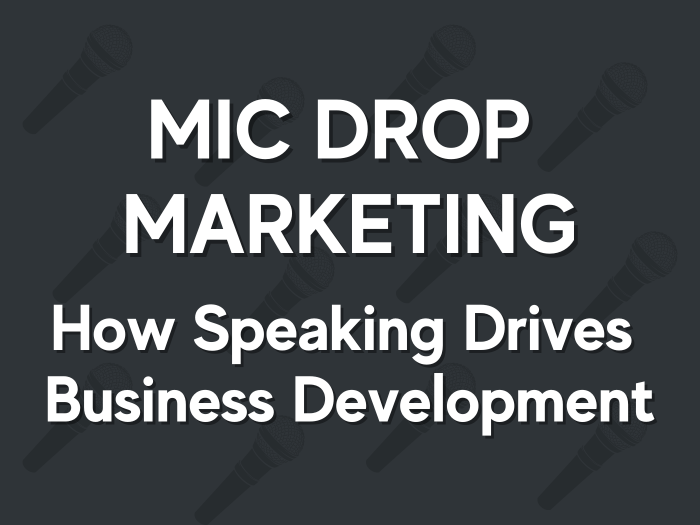
It’s the start of a new decade and for many of us, the urge to reflect and set resolutions is even stronger than usual. As legal marketers, we all want to make sure this year—and this decade—will bring new and plentiful opportunities for our lawyers.
Clare Block, director of business development at Fox Rothschild, has more than 20 years of experience in legal marketing and business development, including frontline sales. She joined the Law Firm Marketing Catalyst podcast to share her best advice for legal marketers in 2020. Read the highlights from the episode below.
- Get more sales training
Client-facing sales is becoming more accepted in the legal industry, and many marketers are looking to shift into frontline sales roles. If you’re one of these, the good news is that you don’t have to leave your job to increase your sales experience. It’s possible to strengthen your skills while maintaining your current role.
If you have the time and resources, a coaching program is a great way to build a foundation of sales knowledge. If formal training isn’t available to you, there are ways to train yourself. Start by looking outside the legal industry to find out what other professionals in services marketing are doing. There are tons of organizations out there for accountants, engineers and architects—all people who are doing frontline sales every day. Joining these organizations and networking with sales professionals in these industries is a great way to learn their techniques.
Even without any training, there are strategies you can start using today to become a better salesperson. Next time you’re working with a lawyer to convert a lead, ask questions from a client-focused perspective. So often, we listen to lawyers and what they want to do without testing their ideas against what the prospective client actually wants. Think of yourself as the voice of the client and help lawyers think outside of the legal box. Honing this skill now will lay the foundation to become a top-notch sales professional.
- Use the right metrics
Even small firms that don’t have automation systems or CRM software can use data to inform their marketing choices—and all it takes is a simple sales spreadsheet and some determination. The most basic metric all firms should track is total marketing spend broken down by channel (i.e., advertising, conferences, memberships, etc.). If you want to slice and dice the numbers even more, you can break them out by practice area, industry and individual attorney, too. This gives you a good overall view of where your marketing money is going.
Once you start tracking total marketing spend, you can then measure total leads generated by each channel. For example, every time an attorney goes to a networking event or conference, you can track who they met, how many contacts were made and how they followed up. Even if a contact doesn’t become a client, they still count as a lead. This is another valuable metric to have because it shows you whether or not you’re getting your money’s worth out of conference fees, membership dues and other marketing expenses.
When you have total leads calculated, you can then track conversions: the leads who turned into clients. Why is this number important? Let’s say an attorney attended a conference where they generated a ton of leads, but none of them converted into clients. This means it’s time to sit down with attorneys and figure out why leads aren’t pulling the trigger on hiring your firm. On the other hand, if you only generate a handful of leads from an activity but almost all of them convert to clients, that’s a good sign. Seeing the small number of leads alone might lead you to believe that it’s not a valuable activity, but the number of conversions proves that you’re taking the right approach.
Finally, the last piece of crucial data is client acquisition cost, where you compare your spend per channel per activity to the number of clients (and therefore, the amount of revenue) it brings into your firm. A particular activity might be expensive, but if you know it’s generating the right amount based on the numbers, it’s still worth doing. When you’re deciding what business development activities to focus on, having this information changes the conversation from one based on hunches and projections to one based on facts and certainty.
- Focus on industry-based marketing
As legal industry insiders, we’re used to breaking up attorneys by practice area. Most clients, however, don’t think about their legal representation based on area of law. They don’t necessarily care about a firm’s incredibly detailed knowledge of non-compete agreements, for example. What they really want to know is whether the firm knows non-compete agreements in the context of their particular industry.
The majority of clients are either laypeople who may not fully understand the breakdown of different practice areas, or in-house counsel who are reporting to people in the C-suite. In either case, these clients want to be able to say to their superiors, “This lawyer is an expert on our business because they have experience and success in our industry.” The lawyer’s exact title or practice area doesn’t matter as much as demonstrable expertise.
Clare’s firm, Fox Rothschild, as well as many other large and mid-sized firms, have started pulling in lawyers from across practice areas to zero in on the needs of clients, all to great success. Industry-based business development is here to stay. If you want to implement just one practical strategy that generates results and makes sense for lawyers and clients alike, try shifting toward industry-based marketing in 2020.
Click here to download/subscribe to the Law Firm Marketing Catalyst podcast.



